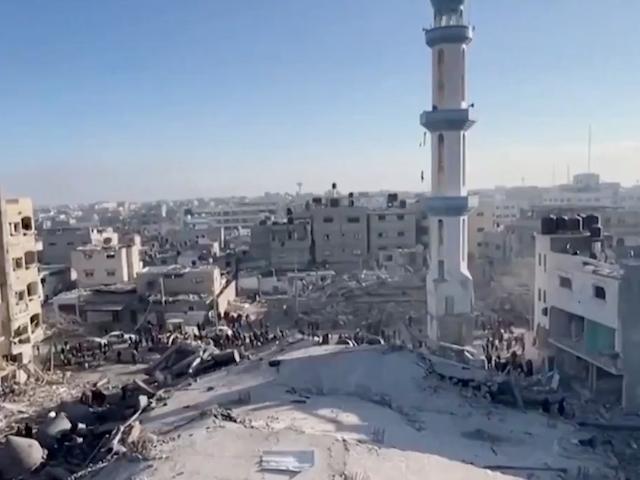The Israeli military has developed a comprehensive strategy for the potential evacuation of civilians from Gaza's combat zones, particularly focusing on Rafah, a city bracing for an imminent military offensive. This plan, which was meticulously crafted upon the directive of Prime Minister Benjamin Netanyahu, aims to mitigate the humanitarian impact of military operations against Hamas, the organization governing Gaza, recognized as a terrorist group by Israel and several other countries.
In an effort to safeguard over a million inhabitants of Rafah, a densely populated area now at the heart of the conflict, the plan underscores Israel's commitment to minimizing civilian casualties amidst its decisive steps to neutralize Hamas's military capabilities. Netanyahu's office, while not specifying Rafah, confirmed the submission of this evacuation strategy for cabinet approval, signaling a proactive approach to address the escalating humanitarian concerns in the region.
Our leaders must take heart from the courage and faith exemplified by our soldiers.
— Avraham Israeli Zionist 🇮🇱🇨🇦 (@IsraeliAvraham) February 25, 2024
Israel should move through Rafah without Washington's approval https://t.co/U9Bh3OLese
This initiative comes amid growing apprehensions within Gaza and the international community regarding the planned offensive. Rafah, situated adjacent to Egypt's closed border, has become a refuge for displaced Palestinians. However, with the advancing Israeli military and the city's geography offering no further escape routes, the situation for civilians has become increasingly dire.
The United States has emphasized the necessity of a "credible" evacuation plan for Palestinians, reflecting the international call for a balanced approach that prioritizes civilian safety alongside the pursuit of military objectives.
‘The sad thing is that Israel could have taken the initiative, built a humanitarian zone, moved all the civilians out of Rafah, and not laid itself exposed to the whiffs and whims of UNRWA’
— i24NEWS English (@i24NEWS_EN) February 26, 2024
Former @IDF International Spokesperson Lt. Col. (Res.) @jconricus tells #i24NEWS pic.twitter.com/kF6I92A17k
Further demonstrating Israel's humanitarian considerations, Netanyahu's office announced the approval of measures to deliver assistance to Gaza. These efforts aim to circumvent the issues of looting observed in the northern Strip and other areas, ensuring that aid reaches those in need efficiently and securely.
Netanyahu, in his discourse, has articulated a clear vision for the operation in Rafah, identifying it as essential for dismantling the last bastion of Hamas's military infrastructure. With the city hosting significant Hamas command elements, Israel views the Rafah operation as crucial for achieving lasting peace and security in the region.
UNRWA works for Hamas, and the Gazans are of no interest to them.
— Israel Kicks A** (@Israelkicksass) February 26, 2024
They intentionally create a humanitarian crisis to blame Israel.
2/2
The Israeli Prime Minister also highlighted the dual nature of the military's directive: to facilitate civilian evacuation while simultaneously targeting Hamas's military assets. This strategy underscores Israel's commitment to a responsible military engagement, aiming to protect innocent lives while addressing the threat posed by Hamas.
In the broader context of seeking a peaceful resolution, negotiations have been underway involving Israel, the United States, Egypt, and Qatar. These talks aim to establish a framework for a humanitarian pause and the release of Israeli hostages held by Hamas. While a final agreement remains pending, the ongoing dialogue in Qatar signals a concerted effort to de-escalate tensions and secure a ceasefire, offering a glimmer of hope amidst the conflict's complexities.
Netanyahu says:
— That American Jew (@newyork_jew) February 26, 2024
“We’re On The Way To Rafah, We’ll Achieve Victory In Weeks”
May Hashem protect Israel and the IDF and bring our hostages home!
🇮🇱🙏🇮🇱
As the situation evolves, the international community watches closely, hopeful for a resolution that balances the imperative of security with the paramount importance of humanitarian principles.


